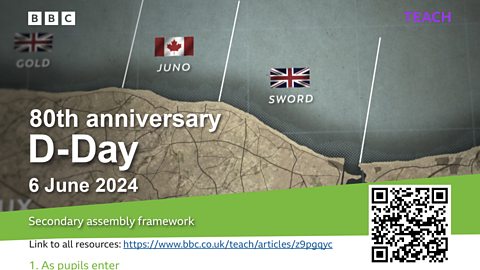Aim
To celebrate a major sporting occasion and/or the achievements of the England women's football team - the 'Lionesses'; to learn about the 'Lost Lionesses' and consider prejudice.
The video
The story of the England women's football team who competed in the 1971 Women's World Cup in Mexico.
VO:
The Women's Football World Cup Mexico 1971. Copa 71. Six national teams, including England, competed for the title of World Champions. The games were played in front of sellout crowds. The final was held in the famous Azteca Stadium, in front of an estimated crowd of 110,000. A record for women's football that stands to this day. Three members of the England team were Leah Caleb, Gill Sayell and Paula Rayner.
These are their memories of the tournament, spoken by aspiring young footballers of today.
JAZMIN (speaking as Leah Caleb):
It's the first time I'd ever been on a flight. So when we arrived in Mexico and went down the steps of the plane, one of the other girls said, there must be a celebrity on there. There were reporters at the bottom of the steps, flashlights going off everywhere. All of our photos were being taken. And then we quickly realised that actually, it was about us arriving in Mexico City.
GUS (speaking as Gill Sayell):
We just had no idea what we were in for. We didn't have a clue. When we got to the Azteca Stadium, it was just something none of us could have imagined. Back in England, we're lucky if we played in front of 20 people. We were just playing on park pitches and that was really all we knew. We walked out onto the pitch and the crowds, the noise made the hairs on your back, your neck stand up.
MAISIE (speaking as Paula Rayner):
The fans were so fanatical in Mexico. It was overwhelming. The Mexican people were so warm and welcoming to us both on and off the pitch. Being a part of that team, it was a magical moment for me.
VO:
Copa 71 wasn't recognized by football's official governing bodies, so while the England players might have expected to return home to a hero's welcome, the reality was very different.
JAZMIN (as Leah):
When we got home, it was like walking into another world again, going through that looking glass and nothing had changed. We walked back into the same mindset women and girls shouldn't play football. Why would they want to play football?
GUS (as Gill):
There was no write ups. There's barely any mentions of it in newspapers, and any write ups were minimal and pretty derogatory.
So when we got home after such a phenomenal month of football, we thought, this is where the women's game's going. This has got to be the start of it in England, but actually had the opposite effect.
MAISIE (as Paula):
We were all given bans when we got back and our team disbanded. Our manager Harry Batt got banned for life. But why? He was only trying to promote the sport they dedicated his life to. It was wrong. So wrong.
JAZMIN (as Leah):
It was all about the politics of the association at the time and the attitudes towards women playing football. The fact that it got shut down and hidden away. That's actually what happened.
GUS (as Gill):
It felt like the FIA had put us on a naughty step, like we'd done something wrong.The seventies was a pretty volatile time, to be honest. It was as if a woman's place was just in the kitchen.
MAISIE (as Paula):
Football was seen as a man's sport. So why would they want to promote something that was so positive for women's football? You get memories from talking, but we never talked about what happened.
JAZMIN (as Leah):
The truth will always come to the surface in the end though.
VO:
In recent years, women's football has gone from strength to strength. Spearheaded by the England women's team winning the European Championship in 2022 and finishing runners up in the World Cup of 2023.
So what did the Lost Lionesses of 1971 make of that recent success?
LEAH:
I am so pleased that at last, women's football is where it should be on the stage. It should be, and they all have opportunities and little girls. As I was once a five year old, can just run in a football kit and everyone is delighted.
PAULA:
The infrastructure is only just all gelling together, to advance it. And I think the turning point is the euros 22 that’s done that.
GILL:
People might say we were trailblazers. We were doing what we loved doing. We were playing the sport.
GUS (as himself):
The story of the Lost Lionesses is very impactful, very powerful. Having more role models in football is such a crucial thing for people.
As a football coach, myself, it's so encouraging to see. When you now ask a young girl who her favourite footballer is she’ll answer the name of someone in the Women's Super League.
MAISIE (as herself):
From the players experiences in 1971. We can also learn to always kind of pursue what you want to do. Don't let anything kind of stand in your way.
JAZMIN (as herself):
I think the power of football is so underrated. The teams that you can build, friendships that you can make, and everyone should be able to experience that you love it.
GILL:
Just carry on and do it. You know, don't don't let anybody put you off. If that's your passion, you follow that. That's what I did.
PAULA:
Young girls want to play. They've got people to look up to. They've got names to recognise. You know, I want to be like Beth Mead, or I want to be like, you know, Lauren Hemp from know girls wanting to go in goal.
LEAH:
There's hundreds, thousands of women that's played before us and at the time. It's up for all of them that carried on playing. That is actually meant we are where we are today.
Video summary
The video features the memories of Leah Caleb, Gill Sayell and Paula Rayner - three of England's players at Copa '71. Their words are initially spoken by Jasmine, Gus and Maisie - three of today's aspiring young footballers.
In the film Leah, Gill and Paula describe arriving in Mexico in 1971 for the tournament and their excitement at taking part in front of such large crowds. They share their sense of disappointment on returning to the UK to discover that the tournament has gone largely unnoticed. They go on to describe the pain of being banned from playing and the team being disbanded. As Paula Rayner says: 'You get memories from talking; but we never talked about what happened.'
The video then adopts a more optimistic tone as it considers the achievements of the Lionesses. Leah, Gill and Paula are delighted by the success of the current team, but - more importantly - are delighted that the team are an inspiration to young people across the UK who are able to put on their kit and play football where and when they like.
The video ends with Jasmine, Gus and Maisie speaking their own words and reflecting on the inspirational story of the 'Lost Lionesses' and their own love for the sport.
Context
It may be the biggest sporting contest you've never heard of. In 1971 six national football teams - including England - competed in Mexico for the Women's World Cup. The tournament was a huge success, with the final played in the famous Azteca Stadium in front of an estimated crowd of 110,000 - a record for women's sport that stands to this day.
Denmark won the final and were crowned world champions. But unofficial champions, because Copa '71 wasn't sanctioned by football's governing bodies - including the FA (Football Association) in this country.
The England team might have expected to return to a hero's welcome, but the reality was very different. The players all received bans from the FA and the manager - Harry Batt - was banned for life. The tournament was largely ignored by the press and in the years that followed the team drifted apart and the players never met up to reminisce about the occasion.
To understand how this could happen you need to consider the history of women's football in the UK. In the early 20th century the women's game was every bit as popular as the men's - for example, on Boxing Day 1920 a women's match attracted a crowd of over 50,000 in Liverpool. But shortly after, in 1921, the FA chose to ban the women's game in England. Clubs were told they could not allow women's matches to take place on their grounds and the FA even stated that 'the game of football is quite unsuitable for females and ought not to be encouraged.' The ban was finally lifted in 1970, but it meant that the team assembled for Copa '71 was an unofficial one, not recognised by the FA.
Since 1970 the women's game has gone from strength to strength. And the England women's team - now official and dubbed the 'Lionesses' - won the European Championship in 2022 and finished runners-up in the World Cup of 2023.
Possible discussion points before the video
If showing the film in the run-up to a big football or other sporting tournament you could ask who is aware of a big sporting occasion about to happen. [The UEFA Women's European Championship will be held in summer 2025].
- Who has heard of the 'Lionesses'? Who are they? [Invite responses and establish that 'Lionesses' is the nick-name of the England women's football team].
- Does anyone know what success the Lionesses have had? [Winners of the European Championship in 2022; runners-up in the World Championship 2023.]
- If the 'Lionesses' are the women's football team, who might the 'Lost Lionesses' be? [Invite responses. Establish that the assembly will discover who the 'Lost Lionesses' are in the video they are about to watch].
Possible discussion points after watching the video
You may wish to reiterate that the England players were banned on their return from Copa '71 because it was an unofficial team, not sanctioned by the FA, and that the FA had only very recently lifted a 50 year ban on women playing football.
- Why do students think Copa '71 attracted so little interest in the UK?
- Jasmine (speaking the words of Leah Caleb) says: 'It was all about the politics of the Association at the time and their attitudes…' Why do students think the FA handed out bans to the England players?
- Jasmine (speaking as herself) says: 'The power of football is so underrated - the teams that you can build, the friendships you can make, and everyone should be able to experience that.' Do pupils share that feeling? What are their views on sport - both positive and otherwise?
- Why do students think the video was filmed with the young footballers speaking the words of the England players? What effect does it have?
- Women are often paid less than men when playing sport professionally. Why do pupils think that happens? Do they think it happens outside of sport? Are they aware of any cases?
- Clearly sexism plays some part in the story of the 'Lost Lionesses'. Do students think sexism is an issue today? In sport? In society more generally? If so, how should it be challenged?
Resources
Assembly framework (PDF, 191KB) documentAssembly framework (PDF, 191KB)
Download / print the assembly framework for use
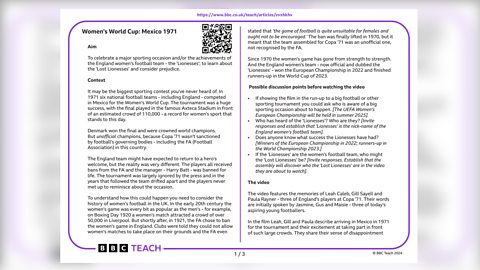
Presentation (PPT, (67KB) documentPresentation (PPT, (67KB)
A series of slides for use during the assembly
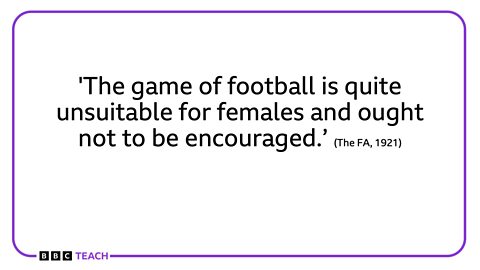
Related links
BBC Sport: 'Lost Lionesses' documentBBC Sport: 'Lost Lionesses'
Article exploring the story of the England women's football team who competed in the 1971 Women's World Cup in Mexico.
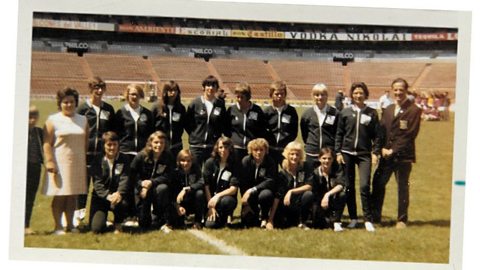
Newsround (5 March 2024)
Women and girls need more support in sport, say MPs
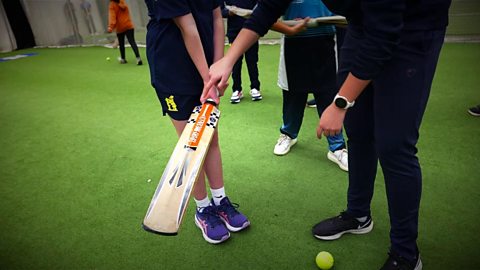
Storyville: Copa '71 - BBC documentary. videoStoryville: Copa '71 - BBC documentary
A Storyville documentary about an extraordinary football tournament, told through the fearless voices of the women who took part and including recently uncovered archive footage.

Secondary assemblies
Jane Austen at 250 - secondary assembly. collectionJane Austen at 250 - secondary assembly
An assembly framework to mark the 250th anniversary of the birth of Jane Austen in 2025 and to celebrate her contribution to storytelling and consider celebrity.
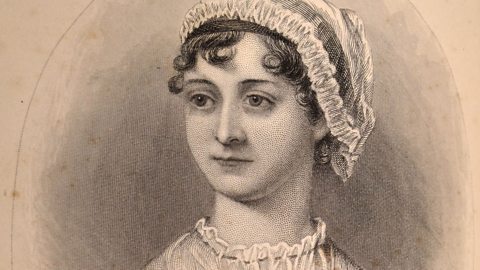
Anti-Bullying Week – secondary assembly. collectionAnti-Bullying Week – secondary assembly
A secondary assembly framework and video to mark Anti-Bullying Week focusing on the power of words and the need to use them carefully.

Safer Internet Day - secondary assembly. collectionSafer Internet Day - secondary assembly
An assembly framework and video to mark Safer Internet Day, celebrate online safety and to consider practical steps to remaining safe online.

Holocaust Memorial Day – secondary assembly. collectionHolocaust Memorial Day – secondary assembly
An assembly framework and video to help mark Holocaust Memorial Day. In this video, Emma-Louise Amanshia meets John Hajdu MBE to hear about his experiences of surviving the holocaust.
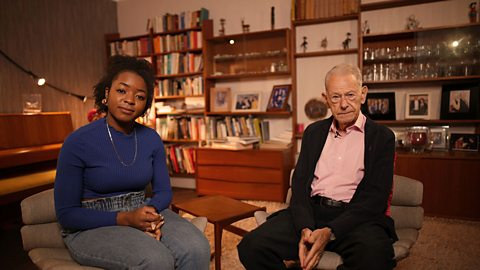
VE Day 80th anniversary – secondary assembly. collectionVE Day 80th anniversary – secondary assembly
An assembly framework and video to commemorate 'VE Day' on 8 May and to consider what life was like in the UK in the years immediately after World War II.
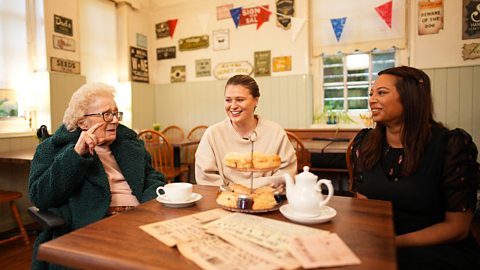
D-Day – secondary assembly. collectionD-Day – secondary assembly
Two videos about the D-Day landings from both a British and German perspective to provide an understanding of the actions of the human beings involved on both sides.
